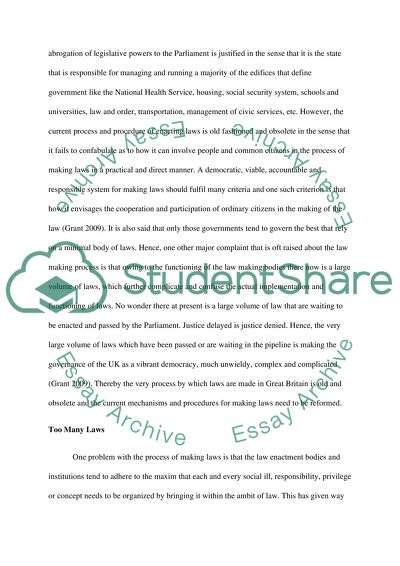Cite this document
(“The process by which laws are made is old fashioned and complicated Coursework”, n.d.)
Retrieved from https://studentshare.org/law/1612097-the-process-by-which-laws-are-made-is-old-fashioned-and-complicated-the-significance-of-the-parliament-acts-1911-and-1949-in-the-legislative-process-is-limited-the-current-legislative-structure-and-procedure-requires-reform
Retrieved from https://studentshare.org/law/1612097-the-process-by-which-laws-are-made-is-old-fashioned-and-complicated-the-significance-of-the-parliament-acts-1911-and-1949-in-the-legislative-process-is-limited-the-current-legislative-structure-and-procedure-requires-reform
(The Process by Which Laws Are Made Is Old Fashioned and Complicated Coursework)
https://studentshare.org/law/1612097-the-process-by-which-laws-are-made-is-old-fashioned-and-complicated-the-significance-of-the-parliament-acts-1911-and-1949-in-the-legislative-process-is-limited-the-current-legislative-structure-and-procedure-requires-reform.
https://studentshare.org/law/1612097-the-process-by-which-laws-are-made-is-old-fashioned-and-complicated-the-significance-of-the-parliament-acts-1911-and-1949-in-the-legislative-process-is-limited-the-current-legislative-structure-and-procedure-requires-reform.
“The Process by Which Laws Are Made Is Old Fashioned and Complicated Coursework”, n.d. https://studentshare.org/law/1612097-the-process-by-which-laws-are-made-is-old-fashioned-and-complicated-the-significance-of-the-parliament-acts-1911-and-1949-in-the-legislative-process-is-limited-the-current-legislative-structure-and-procedure-requires-reform.


